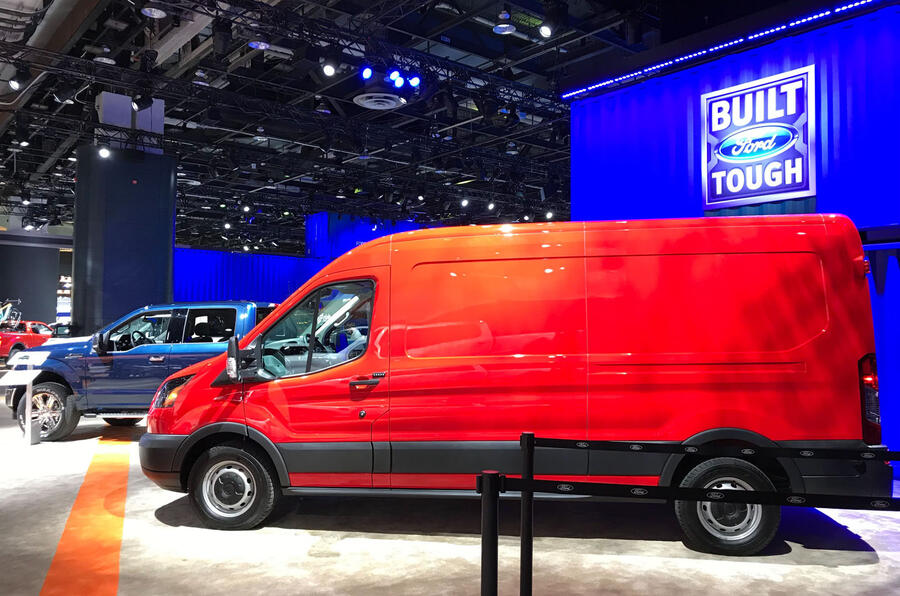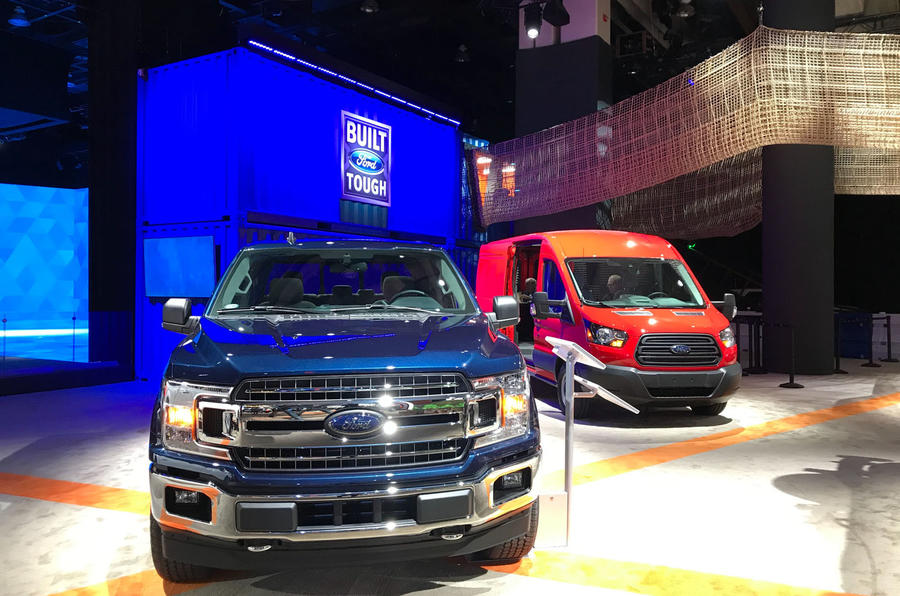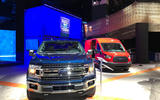Given that Ford and the Volkswagen Group compete head-to-head in multiple markets around the world, the extensive new partnership between two of the biggest car companies in the world might seem a surprise.
But the deal makes perfect business sense. Despite their individual scale, both have something that the other wants.
Volkswagen needs Ford’s expertise in commercial vehicles (which was the scope of the initial deal), such as the Ford Transit van and mid-size pick-ups. In particular, the SUV and pick-up focused USA is one of the few markets where Volkswagen isn’t fighting for the top spot.
Led by the Volkswagen Tiguan and Atlas, Volkswagen has made huge strides with its North American SUV line-up in recent years – its sales in the segment were up 112% year-on-year in 2018 – but the firm doesn’t have a pick-up to offer in the market (the European Volkswagen Amarok is simply too small). Even if a VW pick-up developed on a Ford platform only captured a small share of the market, it could still be hugely successful for the firm.

In return, Ford wants the economies of scale of electric car production that the VW Group’s MEB platform is set to offer. The architecture is set to be introduced across the VW Group, and has been designed to be adaptable and configurable for a wide range of models competing in diverse market segments. By potentially basing future EVs off it, Ford could save millions in development costs.
Add in the money Volkswagen saves on potential commercial vehicle development, and the two firms suddenly have substantial cash free to invest in future technology such as autonomy and connectivity – and pooling that research could greatly benefit both firms.













Join the debate
Add your comment
It may be a long way off, but
It may be a long way off, but as the motoring world heads towards autonomous vehicles there will be no need for all these different companies. There will be more and more collaborations and mergers, until just a handful of manufacturers exist. After all, how many different train or bus manufacturers are there in the world, and as the customer, are you remotely interested who makes your train or bus? Along with motoring journalists, car manufacturers are in the equivalent time phase as September is for turkeys.
They worked together in the
They worked together in the past.
The VW Sharon / SEAT Alhambra / Ford Galaxy.
And in South America they built mk5 Escorts as VWs (Apollo, Pointer)
EV's
Author is over egging what FORD can get, the deal was :- The two have also signed a memorandum of understanding to “investigate collaboration” on electric and autonomous vehicles.
The present deal gives FORD nothing other than a maybe.